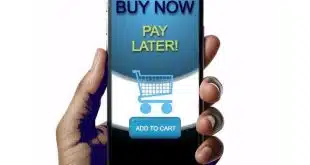NACHA, which took the opportunity presented by its annual payments trade show this week in San Diego to promote the upcoming pilot of its new Internet payment application, appears to be on track toward its Aug. 30 target date for recruiting most participants for the project. But key issues like transaction fees and processes for handling transaction disputes remain unsettled, executives say, even as an announced early 2007 milestone approaches for getting the pilot under way. These issues, indeed, are serious enough that at least one major bank has refused to support the new application. “There's inherent flaws around the operating model, and we don't feel NACHA has addressed these,” says Patrick J. Moore, senior vice president of treasury and security services at JPMorgan Chase & Co. For their part, NACHA and the vendors it has enlisted to build the network for the e-commerce pilot say interest in the service is running high among banks, merchants, billers, and brokerage firms. “The great news is there's tremendous interest,” says Samantha Carrier, director of e-commerce services at NACHA, the Herndon, Va.-based organization that establishes the rules for the automated clearing house network. “There's definitely folks who've raised their hands and said, 'count me in.'” She says she can't say who these interested parties are until they have signed off on an announcement. She adds the association is taking bids from marketing firms in an effort to come up with a name for the service, which had been called “credit push” and was referred to by some at this week's conference as “online payments.” While several critical aspects of the project have been settled?including the selection of eWise Systems, an Australian software firm, and Unisys Corp. to run, respectively, the network and the data center for the pilot?the issues of fees and exception items remain undetermined. NACHA is promoting the service as a means by which banks can derive revenue from their online-banking systems, but the interchange fees it says merchants' banks will pay consumers' banks on each transaction are not yet known, Carrier says. “We're working on that,” she says, adding the three primary online payment types in the application?spontaneous retailing, bill payments, and account funding?will likely each carry its own interchange rate. Some backers look to the pilot itself, which is scheduled to run 12 months, to help settle the fee question. A fee to consumer banks is necessary in part, NACHA says, because these banks are responsible for authenticating consumers and guaranteeing funds to merchants. Merchants will benefit, backers say, from lower transaction costs relative to card-not-present rates on credit cards and reduced rates of shopping-cart abandonment, which is said to be a result of offering additional payment options. On the question of exception items, such as transactions involving partial shipments of goods, refunds, merchandise not as described, or other causes of disputes between consumers and merchants, Carrier says NACHA has ironed out most of the processes necessary to handle these situations. The question of rules concerning partial shipments, though, remains open. “The ACH system right now doesn't allow for that,” Carrier says. “Of all the exception scenarios, it's still partial shipments we're still working on.” Partial shipments arise when retailers accept an order only to discover after the online session that low inventory will allow them to fulfill only part of it. But at least one major bank isn't satisfied with what it has seen so far from NACHA on this and other questions. “We have not embraced credit push,” says Moore of JPMorgan Chase. “We haven't seen a business case to demonstrate true value.” Regarding exception items, Moore says the credit card system developed over decades by the banks has created business rules to deal with disputed transactions in clear and consistent ways. He says creating a new system to handle the same payments but without the same or similar rules raises “consumer-protection issues.” As envisioned by NACHA, the new application would allow consumers to make payments and transfer funds between accounts after logging in to their banks' online banking programs. In the system as currently designed, a consumer when ready to buy or make a payment on a Web site would click on a buy button that would automatically bring up a log-in screen for her online-banking program. Once authenticated, the consumer would then see a screen showing details of the transaction, including merchant name, items in the shopping cart, and price. Once she authorizes the sale, she returns automatically to the merchant's site. Merchants would receive instructions once the sale was authorized and could then ship the items. For the pilot, NACHA is looking for five originating financial institutions and at least 10 companies?including banks, billers, mutual funds, and merchants?to serve as payees. The pilot follows a technical test of the system NACHA conducted last summer in which several banks routed transactions through a network designed by eWise Systems. Participants in this so-called proof-of-concept test included National City Bank and Radio Shack Corp.'s e-commerce operation. NACHA's existing e-check application for Internet transactions, WEB, has been chiefly adopted for bill payments by companies with strong relationships with customers. The broader market for so-called spontaneous retail transactions has been difficult for WEB to penetrate because of its lack of an authentication method. But originating banks participating in the pilot will have to be capable of multifactor authentication in accordance with guidelines released last fall by the Federal Financial Institution Examining Council, NACHA officials have said.
Check Also
New York Unveils BNPL Regs
New York Governor Kathy Hochul late Monday unveiled new rules to regulate buy now, pay …







